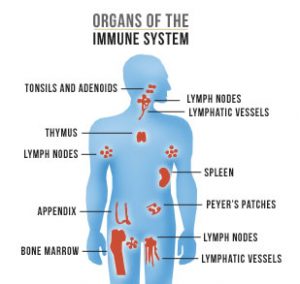Swollen Gums Treatment: Know When Symptoms are Serious & What to Do
Swollen gums or even gum disease might be the sign of a minor oral health problem such as gingivitis, tooth decay, or a buildup of plaque and tartar, but it can also indicate something more serious. What should you do and what do you need to know if you notice your gums are swollen?
Gum swelling and painful gums occur when excess fluid builds between the tooth and gum tissue which could be a result of a simple gum infection or something more sinister. It can be painful and might bleed.
Swollen gums are typically redder and might also feature sores or ulcers. Depending on the cause of the swelling, there can be a sudden onset or swelling could gradually develop over time.
There are some simple treatments for standard gum infections and swollen gums, including gargling warm water, salt water or applying clove oil, castor oil, tea tree oil, or even mustard oil. One of the best ways to reduce your risk for gum swelling, however, is through good oral hygiene. As a matter of fact, most people experience swollen gums because they are not caring for their oral hygiene properly.
It’s also possible for your gums to swell if you have a vitamin C deficiency or if you have a chronic disorder that affects your immune system. Swollen gums is a symptom associated with HIV/AIDS and Behcet’s syndrome, as well as a number of different skin, soft tissue, and bone infections.
“Swelling of the gums is merely a symptom of a larger problem–a problem only your dentist can treat. The plaque and tartar that build up below the gum line can only be properly and thoroughly removed by a trained dental hygienist.”

Medical attention should also be your top priority if swollen gums are accompanied by a high fever, difficulty swallowing, or breathing.
There is a variety of different symptoms that can occur simultaneously with gum swelling, most of which are not serious and do not indicate a severe medical problem. In addition to swelling, gums might be:
- Tender or irritated
- Receding
- Bleeding
- Bright red or purple
- Shiny
Swollen gums might also be accompanied by bad breath, loosening of the teeth, nausea, and digestive issues. In most cases, swollen gums are an indication or poor oral health and not connected to a serious medical issue, but if you experience swollen gums and any of the following, you should seek medical attention immediately:
- Sore tongue
- Swollen lymph nodes
- Pale skin
- Unexplained weight loss
- Fatigue
- Lightheadedness or dizziness
- High fever (101 degrees Fahrenheit or higher)
- Difficulty swallowing or breathing
- Severe bleeding from the gums
What Causes Swollen Gums?

The best way to alleviate the problem is to keep up with routine visits to the dentist and schedule a deep cleaning if it’s been awhile since your last one and your gums have been affected.
At-home dental care, including flossing and brushing, can also keep swelling under control. There can also be other issues involved related to oral health. For instance, if your teeth are misaligned, you’ve developed rough edges on your fillings or fillings were never filed smooth, or you have ill-fitting dentures or dental implants, it can cause swelling.
Swollen gums can also be caused by dry mouth, periodontal disease, and canker sores. Most people who have newly installed or adjusted braces experience some gum swelling.
Swelling of the gums is actually inflammation, so any medical condition that triggers inflammation can affect the gums. There are also certain medications that trigger gum swelling, including birth control pills. Exposure to heavy metals has been known to cause swelling. Hormonal changes can also be a factor, so teens and pregnant women are prone to swollen gums. Tobacco use is also known to cause gum swelling and increase your risk for other oral health problems.

It’s also important to look at your symptoms in total, so if you visit your doctor for other health concerns, you should mention your gum swelling. Serious medical issues that can trigger gum swelling include:
- Anemia
- Behcet’s syndrome
- Diabetes
- Cancer
- Heart disease
- Substance abuse
- Oral cancer
- HIV/AIDS
Swollen gums, left untreated, can create a number of oral health complications, including:
- Gingivitis
- Abscess
- Infection
- Spread of infection
- Tooth loss
- Trench mouth
What to Do about Swollen Gums?

Assuming the swelling is related only to oral health, a deep cleaning will help to reduce gum swelling, though, initially the swelling will likely intensify.
Reducing gum swelling requires diligent at-home oral care. If the swelling is severe and/or caused by an infection, your dentist will prescribe medication to treat the problem and reduce the pain and swelling.
Over-the-counter anti-inflammatory medications are also effective for treating gum swelling. These medications, including ibuprofen or acetaminophen, usually offer the additional benefit of pain relief. Topical OTC medicines are also effective for soothing pain and irritation and reducing swelling. Your doctor can recommend an appropriate OTC medication and give you tips for treating swollen gums if prescription medications are not necessary.
In addition to medication, there are a few additional steps you can take to relieve swelling. Eat cold food, as long as you are not too sensitive to do so. Just as you would put ice on an injury elsewhere on your body to prevent swelling, cold is effective for reducing swollen gums, too.

They are not a treatment that should be used to heal the problem, especially if you have not identified the cause. The most important thing you can do to alleviate gum swelling is to visit a dentist and undergo a thorough examination.
If you would like more information or you need assistance finding a dentist to help you treat swollen gums, use our contact form or call us toll-free at the number provided for more information.
Medically Fact-Checked & Written by Our Dental Editorial Team
You can read more about our editorial guidelines by clicking this link and learn more about the Emergency Dentists USA editorial team here.


